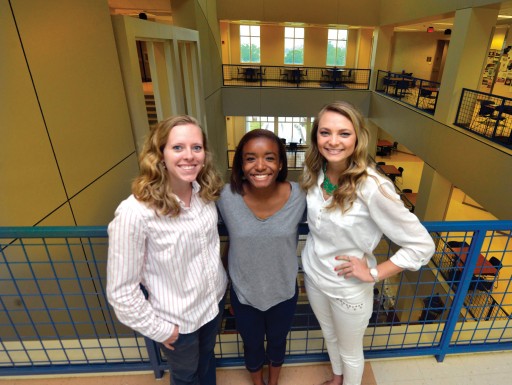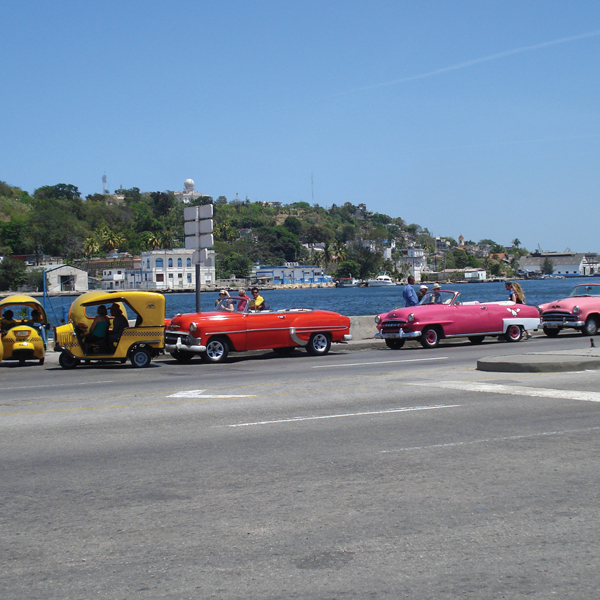Empowering Students in a Shrinking World
Jazmine Bates, Madison Layton, and Amy Richardson shared their infancy with the World Wide Web.
You might say they grew up together.
At the time of their birth, only 1 percent of the world’s population had access to the Internet. In the course of their lifetimes, that number has grown to 42 percent, or more than 3 billion worldwide — with nearly a million more connecting each day.
And that connected world — where information circles the globe at the speed of a tweet —requires a global perspective. A perspective that more and more students are acquiring as they study abroad.
2015 Spring Break Odyssey
“I was kind of scared going to Cuba,” said Richardson, an accounting major in the Hull College of Business, who participated in a spring break study abroad trip to the island nation. With relations only recently thawing, she wasn’t sure how welcome a group of American students would be.
“But they were so welcoming,” she said. “People cried right in front of us because they knew it meant change was coming.”

Richardson and 15 other students, along with two faculty members, spent time in the capital city of Havana with a side trip to the small town of Viñales, about two-and-a-half hours to the west. Various stops on the agenda provided time for discussions on current economic, social, political, and cultural changes in the country and — more importantly — to experience them firsthand.
“Havana is full of old cars, just like you would expect,” said Richardson. But she was also struck by the omnipresence of government and old Spanish architecture going to crumbling ruin for lack of resources.
Bates, a biology major, and Layton, a pre-marketing major, traveled to Costa Rica as part of the First-Year Experience program for freshmen.
Bates remarked on the lack of infrastructure compared to home, the lower quality of health care, and the difference in police response. “If there was a crime, the police wouldn’t bother,” she said. “Not like here, where you can count on them to come.”
Layton noticed how much simpler they lived compared to the U.S. and relished “the chance to experience a different culture, food, people, and atmosphere.” Their instructors helped them explore issues of culture and sociology as they stayed overnight with a local family, planted trees to offset their carbon footprint, zip lined from a mountain so high they could see both the Caribbean and Pacific oceans, hiked the Montverde Cloud Reserve, and more.
All three students said that the experience made them appreciate the opportunities they have as young Americans. And all three expressed deep gratitude for the scholarships that helped them make the trip and expand their horizons.
Donors Make a Difference: Brian Marks
Over the past five years, 440 scholarships have enabled 320 students to participate in 71 different study abroad programs — thanks to the generosity and vision of just one man.
“It’s difficult to exaggerate the enormously positive impact Brian Marks has had on our study abroad programs and these students’ lives,” said Maria Darley, Director of Study Abroad. “Thanks to his kindness and generosity, our students are expanding their education to the world — and enhancing their opportunities to work and contribute when they graduate.”
Students participate in fundraising activities — like selling Yankee Candles and holding a raffle — and Marks’ scholarships provide a matching funds incentive.
Despite the pressing need for young graduates to adopt a global perspective, only 4 percent of U.S. college students get the chance to study abroad. Marks’ dedication to the GRU Study Abroad Program is keeping its mission alive … impacting, empowering, and enriching students to become global citizens equipped to make a difference in this world.
If you’d like to help students experience the world, please contact Wes Zamzow, Director of Development, at 706-721-2699 or email wzamzow@gru.edu.










